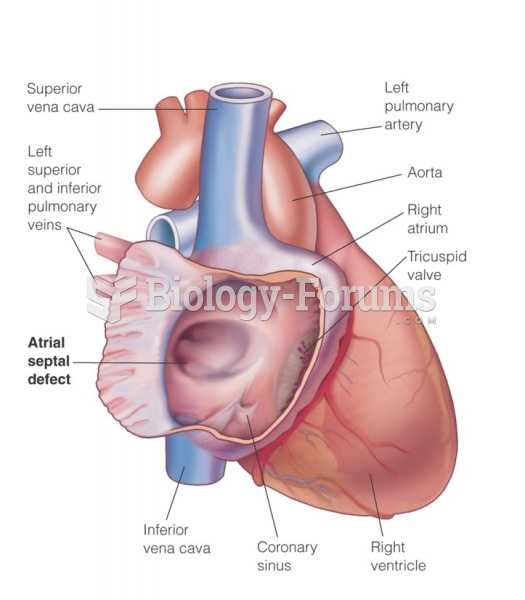This topic contains a solution. Click here to go to the answer
|
|
|
Did you know?
The word drug comes from the Dutch word droog (meaning "dry"). For centuries, most drugs came from dried plants, hence the name.
Did you know?
In ancient Rome, many of the richer people in the population had lead-induced gout. The reason for this is unclear. Lead poisoning has also been linked to madness.
Did you know?
Women are 50% to 75% more likely than men to experience an adverse drug reaction.
Did you know?
The shortest mature adult human of whom there is independent evidence was Gul Mohammed in India. In 1990, he was measured in New Delhi and stood 22.5 inches tall.
Did you know?
The effects of organophosphate poisoning are referred to by using the abbreviations “SLUD” or “SLUDGE,” It stands for: salivation, lacrimation, urination, defecation, GI upset, and emesis.
 Spirituality increases with age, but there are different patterns for the two genders. Both genders ...
Spirituality increases with age, but there are different patterns for the two genders. Both genders ...
 Weak valve springs will produce a normal reading at idle, but as engine speed increases, the needle ...
Weak valve springs will produce a normal reading at idle, but as engine speed increases, the needle ...





